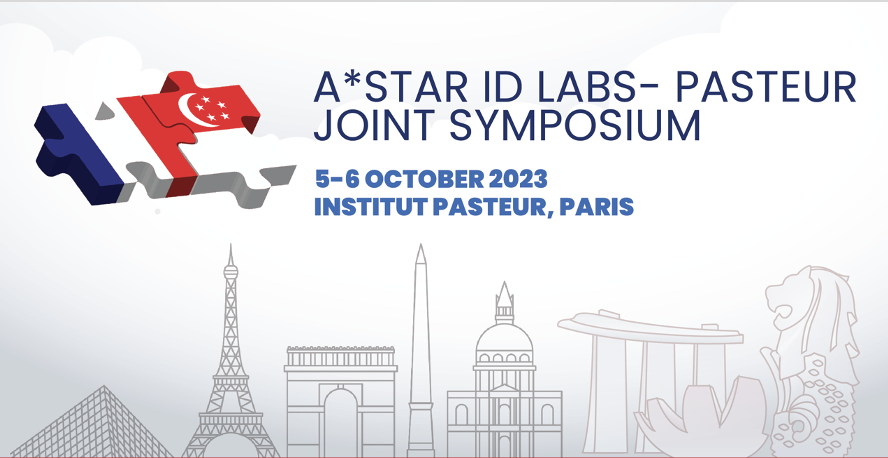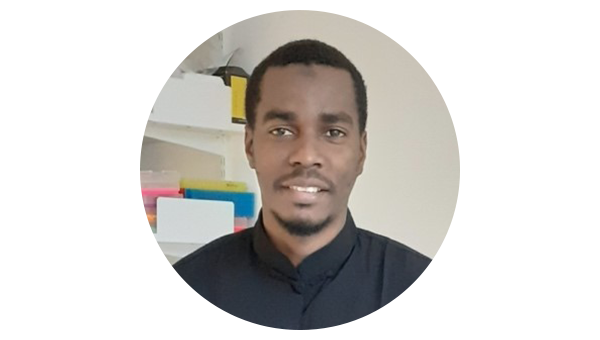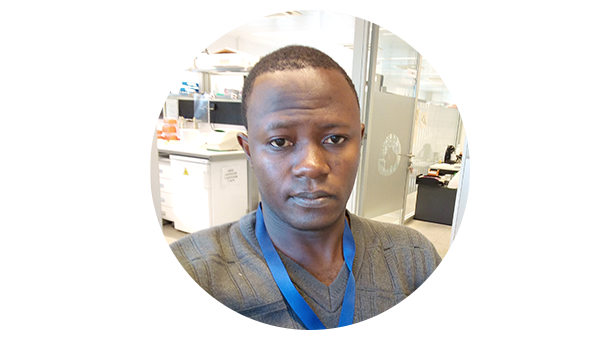Consult the Booklet of the event
A*STAR ID Labs – the Singapore Agency for Science, Technology and Research – Infectious Diseases Labs- and the Institut Pasteur have jointly organized a symposium involving the Pasteur Network.
A Singaporean delegation from A*STAR ID Labs was present at the Institut Pasteur campus on October 5 and 6, 2023, including A*STAR ID Labs Executive Director, Prof Lisa Ng, and A*STAR ID Labs Deputy Director, Ms Amanda Loo. On the opening session, Her Excellency Ms FOO Teow Lee, Ambassador of Singapore in France, reaffirmed the will of Singapore to foster research collaborations with France, and warmly welcomed the strengthening of ties between A*STAR ID Labs and the Institut Pasteur.

The scientific presentations were structured around three broad research areas: respiratory diseases, vector-borne diseases and antimicrobial resistance. Those research areas constitute scientific priorities for A*STAR ID Labs and the Institut Pasteur, as well as for the Pasteur Network.
The first session provided participants with an outline on ongoing tuberculosis research in the Pasteur Network and at the Institut Pasteur, and on epidemic preparedness at A*STAR ID Labs. The second session focused on vector-borne diseases with a wide-range of topics addressed, such as mosquito-virus interactions, trypanosome research, and viral-neuro-immune dynamics in arboviral infections, among others. The last session of the symposium outlined the latest research on antimicrobial resistance undertaken at A*STAR ID Labs, notably on phage therapy, at the Institut Pasteur, for instance on the development of new antibiotics, and in the Pasteur Network, regarding the ongoing battle against antibiotic resistance.
Around 50 colleagues from the Institut Pasteur campus attended the symposium sessions. The speakers’ presentations as well as more relaxed networking moments provided the participants with opportunities to discuss future research projects and collaborations.









About A*Star/ID Labs
Founded in April 2021 as part of the Agency for Science, Technology and Research (A*STAR), Singapore’s lead public sector R&D agency, ID Labs brings together a global and interdisciplinary team of scientists to generate purposeful outcomes towards preparedness and defense against emerging infectious disease threats, a vision shared by the Institut Pasteur and the Pasteur Network.
About the Institut Pasteur
The Institut Pasteur, a non-profit foundation with recognized charitable status set up by Louis Pasteur in 1887, is today an internationally renowned center for biomedical research. In the pursuit of its mission to tackle diseases in France and throughout the world, the Institut Pasteur operates in four main areas: research, public health, training, and development of research applications. The Institut Pasteur is a globally recognized leader in infectious diseases, microbiology, and immunology, with research focusing on the biology of living systems. Among its areas of investigation are emerging infectious diseases, antimicrobial resistance, certain cancers, neurodegenerative diseases, and brain connectivity disorders. The Institut Pasteur’s outstanding research is facilitated by the development of a technological environment of the highest standard, with core facilities for nanoimaging, computational biology and artificial intelligence. Since its inception, 10 Institut Pasteur scientists have been awarded the Nobel Prize for Medicine, including two in 2008 for the 1983 discovery of the human immunodeficiency virus (HIV) that causes AIDS. The Institut Pasteur is part of the Pasteur Network.
About the Pasteur Network
The Pasteur Network is a vast human and scientific community with more than 30 members in over 20 countries contributing together to global health. Located in the heart of endemic areas, the Network has privileged access to a large number of pathogens that it monitors and studies on all five continents. This exceptional diversity makes the Pasteur Network a unique global actor in public health, science, innovation, and education, especially in the fight against infectious diseases.
The Pasteur Network aims to promote collaboration and knowledge sharing by sponsoring yearly high-level training modules . Three recent courses hosted by members of the Pasteur Network addressed some of its main action pillars : epidemic intelligence and preparedness, research, development and innovation, multi-disciplinary knowledge communities and equitable collaboration.
A first course focused on “Biology of emerging and Neglected Viral Infections in Latin America” took place from April 19th to 28th , 2023 at the Institut Pasteur de Montevideo.
The course, organised by Nicolas Sarute (Institut Pasteur de Montevideo), Nolwenn Jouvenet (Institut Pasteur, Paris) and Sandra Cordo (UBA, AUGM, Argentina), brought together researchers and healthcare professionals from all over Latin America. The main objective of the course was to foster a multidisciplinary exchange on key aspects of the biology of neglected and emerging viruses, with a focus on pathogens with an impact on public health. Topics covered included basic virus research, epidemiology, surveillance, and prevention and control strategies.
This course will bear the name of Professor Otto Pritsch, a recently deceased researcher who played a fundamental role in the consolidation of the agreement signed between the French Cooperation for Latin America, the Association of Universities of the Montevideo Group (AUGM), the Institut Pasteur (Paris) and the Institut Pasteur de Montevideo.
Consult the programme on the Institut Pasteur de Montevideo website
A second course within the context of the SARA (Surveillance of antibiotic resistance in Africa) project, co-financed with FSPi funds of the French Ministry of Europe and Foreign Affairs, was held at the Institut Pasteur de Dakar from May 22nd to 26th, 2023. It was co-coordinated by the group of Sylvain Brisse (Institut Pasteur) and Yakhya Diye (Institut Pasteur de Dakar). This intensive course brought together 21 participants from 9 different African countries. The course focused on the sequencing and bioinformatics analysis of bacterial genomes. It also enabled participants to strengthen their collaborative network and share best practices in antibiotic resistance surveillance.
To find out more about the SARA course: read the article published on Pasteur.fr
Finally, the “Immersion in Innovation and Technology Transfer in Biological Sciences and Public Health” course was held from June 26th to 29th, 2023at the Hellenic Pasteur Institute. Over four days, experts spoke about the importance of technology transfer and innovation in the development and manufacture of innovative medical products.
Consult the programme on the Hellenic Pasteur Institute website
By funding these high-level courses and making them accessible to a wide range of participants, the Pasteur Network aims to foster collective action and knowledge sharing, in emerging infectious diseases, anti-microbial resistance and the promotion of scientific innovation.
More information :
List of the courses supported by the Pasteur Network
Pasteur Network contact : Kathleen VICTOIR kathleen.victoir@pasteur.fr
Photo: SARA course in May 2023 at the Institut Pasteur de Dakar. Copyright: Sylvain Brisse
Pasteur International Unit Fungal Extracellular Vesicles has been created by the Institut Pasteur, FioCruz – Oswaldo Cruz Foundation (Brazil) – two members of the Pasteur Network – and the University of Birmingham (UK). The Pasteur International Joint Research Units are jointly created with two or more research teams, working together within the Pasteur Network.
More information :
- Institut Pasteur article : Creation of the Pasteur International Unit Fungal Extracellular Vesicles
- Fiocruz press release : Fiocruz-Pasteur-Birmingham international unit will investigate fungal diseases
About the Pasteur Network
The Pasteur Network is a vast human and scientific community with more than 30 members in over 20 countries contributing together to global health. Located in the heart of endemic areas, the Network has privileged access to a large number of pathogens that it monitors and studies on all five continents. This exceptional diversity makes the Pasteur Network a unique global actor in public health, science, innovation, and education, especially in the fight against infectious diseases.
On Friday March 31, 2023 at a ceremony in Paris, the Institut Pasteur President, Professor Stewart Cole, and the University of São Paulo (USP) Rector, Carlos Gilberto Carlotti Junior, signed articles of association for the Institut Pasteur in São Paulo, a private non-profit organization under Brazilian law. The mission of the institute, an associate member of the Pasteur Network, is to conduct research in the field of biology that contributes to the development of human health, and to promote outreach, education, innovation and knowledge transfer activities and public health measures.
For more information
Read the press release on the Institut Pasteur’s website: https://www.pasteur.fr/en/press-area/press-documents/institut-pasteur-and-university-sao-paulo-sign-articles-association-establish-institut-pasteur-sao
Photo: Signing ceremony at the Institut Pasteur – © François Gardy – Institut Pasteur


On December 09th, 2022 was held the 2021-2022 Institut Pasteur PhD Graduation Ceremony. Three graduates represented Pasteur Network: Dr Habib for the Institut Pasteur de Madagascar, Dr Lyu for the HKU-Pasteur Research Pole and Dr Modiyinji for the Pasteur Center in Cameroon. After the introductory speech of the guest of honor, Prof. Ugur Sahin, Professor of Translational Oncology and Immunology at the University of Mainz and CEO of BioNTech, all had a few minutes to present their background.
Dr. Azimdine Habib

“Always have a goal in life and give yourself all the means to achieve it. Never be afraid of failure but learn from it to move forward”
Dr. Azimdine Habib is originally from the Comoros Islands where he obtained his bachelor’s degree in Life Sciences in 2012. His master’s degree in Fundamental and Applied Biochemistry, option Biochemistry, Biodiversity and Health has brought him to Madagascar. He joined the Institut Pasteur de Madagascar during his second year in the bilharzia laboratory. In 2016, he was recruited as a laboratory technician in the experimental bacteriology unit. In 2017, he began his PhD under the supervision of Dr. Jean-Marc Collard. His thesis explores the link between the composition of the intestinal microbiota and intestinal parasites, especially in children with malnutrition. As part of the “My Thesis in 180 seconds” competition, organized by the Institut Pasteur de Madagascar, Azimdine Habib presented his thesis to a non-scientific audience and won first place in the 2nd edition. He then defended his thesis in December 2021. In October 2022, he joined the BIOMICS technology platform of the Institut Pasteur, also a member of the Pasteur Network, as a research engineer where he is interested in next generation sequencing.
Dr. Huibin Lyu
“Practice is the sole criterion for testing truth”

Dr. Huibin Lyu, aka Tomas, has started his research journey at the Guangdong University of Technology in China, investigating the anti-bacterial and anti-tumor functions of Curcumin. This first encounter with research has spurred him to begin his second Master regarding virology and immunology at Guangzhou Medical University. Especially, he focused on cross-reactive monoclonal antibody screening against the influenza A virus. Under a Doctoral Grants Calmette & Yersin scholarship, he joined the HKU-Pasteur Research Pole, member of the Pasteur Network, to carry out his Ph. D. in Prof. Roberto Bruzzone and Dr. Chris Mok’s group. His initial Ph. D. research proposal was a continuation of his master’s degree and focused on the antibody response after the first influenza infection in the newborn and the specialization of the immune system in the mouse model. In response to the Covid-19 pandemic, Dr. Lyu shifted his focus to another virus, SARS-CoV-2, and contributed to a better understanding of the immune response to this virus. In September 2022, he defended his dissertation on the cross-reactions of the immune system to SARS-CoV-2 in humans and mice. Dr. Lyu is now a post-doctoral fellow at the University of Illinois Urbana-Champaign where he is working to identify signatures of human antibodies against different pathogens.
Dr. Abdou Fatawou Modiyinji

“Science has no homeland”
Dr. Abdou Fatawou Modiyinji completed his studies at the Faculty of Sciences of the University of Yaoundé 1 in Cameroon. In 2012, he obtained his bachelor’s degree in Biology of Animal Organisms. He continued with a master’s degree in Parasitology and Ecology which he obtained in 2015. He then carried out a PhD at the Department of Animal Biology and Physiology and the Centre Pasteur du Cameroun, a member of the Pasteur Network. His thesis, the first study of its kind in Cameroon, focused on hepatitis E among human and animal populations in the country. In addition to characterizing the genotypes of the hepatitis E virus in humans, it highlighted a high seroprevalence of the virus in both populations suggesting an interspecies transmission of the hepatitis E virus in Cameroon. Abdou Fatawou Modiyinji, author of several publications during his thesis, defended his thesis in July 2022. He is now studying enteroviruses as a post-doctoral researcher at the Pasteur Center in Cameroon.
Following the recent outbreak of monkeypox, researchers from the Pasteur Network and ANRS | Emerging Infectious Diseases have published a complete portrait of the disease in the New England Journal of Medicine. This is an opportunity to review the signs of the disease, its origin, and also the projects undertaken by the Pasteur Network, such as AFRIPOX, supported by the Institut Pasteur and in collaboration with the Institut Pasteur de Bangui.
All information on this publication can be found in the dedicated article on the Institut Pasteur website.
For more information:
Article from the Institut Pasteur: Monkeypox: a detailed profile of the disease
Review article: Monkeypox
New England Journal of Medicine, 26 octobre 2022.
Antoine Gessain, M.D., Emmanuel Nakoune, Ph.D., and Yazdan Yazdanpanah, M.D.
DOI: 10.1056/NEJMra2208860
During an epidemic, it can happen that no diagnostic test is perfectly adapted to the pathogen. In order to contain the epidemic as quickly as possible, screening is done using several tests. The interpretation of the results of the different tests becomes more complex, which can make individual diagnosis difficult and lead to an underestimation of the disease’s prevalence. Using the plague outbreak that affected Madagascar in 2017 as a case study, researchers from the Institut Pasteur and the Institut Pasteur de Madagascar propose an analytical framework to characterize the performance of different tests and estimate the true prevalence of the outbreak. Published in the journal Plos Biology, these results will help improve the quality of diagnosis during future epidemics.
Between August and November 2017, 2,414 cases clinically suspected of carrying Yersinia pestis, the plague bacillus, were reported, with a large proportion of pulmonary plague. The samples were analyzed using three types of diagnostic tests: bacterial culture, rapid plague test, and molecular biology or qPCR. Significant discrepancies were observed between the different tests, making interpretation of the results complex. The greatest uncertainty related to the extent of the pneumonic plague outbreak, with positive cases ranging from 1% to 18%. The analytical framework used in this study estimated that 7-15% of suspected cases were carriers of Yersinia pestis for this outbreak.
Estimating the performance of a diagnostic test
Two parameters, specificity and sensitivity, determine the performance of a test. Specificity is the probability of being found negative when uninfected while sensitivity is the probability of being found positive when infected. When there is a reference test with perfect sensitivity and specificity, it is easy to estimate the sensitivity and specificity of other tests by comparing them to the reference test. In the absence of a reference test, as was the case for this plague epidemic, the authors had to estimate the performance of each test and then the prevalence of the epidemic. To do this, they used the latent class method, which is based on the comparison of the results of different imperfect tests. This analysis revealed that molecular biology had the best performance; and that the rapid detection test had limited specificity during the 2017 plague outbreak. Its performance was better the following year, 2018, suggesting that the context of response to a large epidemic can impact diagnostic quality.
Combining results to reconstruct an epidemic
Once the performance of the different tests was known, the researchers determined how to improve case classification algorithms to minimize the risk of false positives and false negatives. They were also able to reconstruct, in a more refined way, the epidemiological trends of the epidemic in space and time. Better classification of cases is particularly important for the allocation of scarce resources, for example by accurately targeting contact tracing efforts where incidence is highest. This avoids deploying resources to false positives and maximizes the impact of mobile testing facilities.
While the development and availability of high quality diagnostics remains a priority, this analytical framework could be a valuable tool to reduce uncertainty for other infectious diseases that lack reference diagnostics. For example, it is already used by the Institut Pasteur de Madagascar to diagnose tuberculosis.
For more information:
Evaluating and optimizing the use of diagnostics during epidemics: Application to the 2017 plague outbreak in Madagascar
Plos Biology, August 15th, 2022.
Quirine ten Bosch†*, Voahangy Andrianaivoarimanana†, Beza Ramasindrazana†, Guillain Mikaty, Rado JL Rakotonanahary, Birgit Nikolay, Soloandry Rahajandraibe, Maxence Feher, Quentin Grassin, Juliette Paireau, Soanandrasana Rahelinirina, Rindra Randremanana, Feno Rakotoarimanana, Marie Melocco,Voahangy Rasolofo, Javier Pizarro-Cerda, Anne-Sophie Le Guern, Eric Bertherat, Maherisoa Ratsitorahina, André Spiegel, Laurence Baril†, Minoarisoa Rajerison†, Simon Cauchemez†
† These authors contributed equally to this work.
* Corresponding author.
https://doi.org/10.1371/journal.pbio.3001736
A study conducted as part of the Afriobiota project involving several members of the Pasteur Network, in collaboration with the University of Lausanne, unravels the link between the gut ecosystem and stunting that affects undernourished children. The results of this research that included nearly 1,000 children aged 2 to 5 years between 2016 and 2018 are published in the journal PNAS.
In children, undernutrition – the consumption and/or assimilation of insufficient food to cover the body’s needs – manifests itself mainly through stunted growth. According to the Food and Agriculture Organization of the United Nations, 22% of children under 5 years of age worldwide will be affected by stunting (estimate for the year 2020).
This study focuses on the role of gut microbial communities (microbiota) in undernutrition. This research was coordinated by Prof. Philippe Sansonetti and conducted within the Pasteur Network. It was conducted over a period of six years by the Institut Pasteur in collaboration with the Institut Pasteur de Madagascar and the Institut Pasteur de Bangui as part of the Afriobiota project supported by the Total Foundation.
The work, carried out in Madagascar and the Central African Republic on 1,000 children aged 2 to 5 years, showed that more than 80% of stunted children have an abnormal bacterial overgrowth in the small intestine (SIBO). More specifically, these are bacteria initially present in the mouth that proliferate in the small intestine. Using experimental models (cell cultures and mice), researchers have shown that this phenomenon slows down the assimilation of lipids. This malabsorption of fats could partly explain the growth retardation suffered by children.
For more information:
Stunted children display ectopic small intestinal colonization by oral bacteria, which cause lipid malabsorption in experimental models
PNAS, October 05th, 2022.
Pascale Vonaesch*, João R. Araújo, Jean-Chrysostome Gody, Jean-Robert Mbecko, Hugues Sanke, Lova Andrianonimiadana, Tanteliniaina Naharimanananirina, Synthia Nazita Ningatoloum, Sonia Sandrine Vondo, Privat Bolmbaye Gondje, Andre Rodriguez-Pozo, Maheninasy Rakotondrainipiana, Kaleb Jephté Estimé Kandou, Alison Nestoret, Nathalie Kapel, Serge Ghislain Djorie, B. Brett Finlay, Laura Wegener Parfrey, Jean-Marc Collard, Rindra Vatosoa Randremanana, Philippe J. Sansonetti* and The Afribiota Investigators
* Corresponding authors.
https://doi.org/10.1073/pnas.2209589119
Flash Research of the University of Lausanne